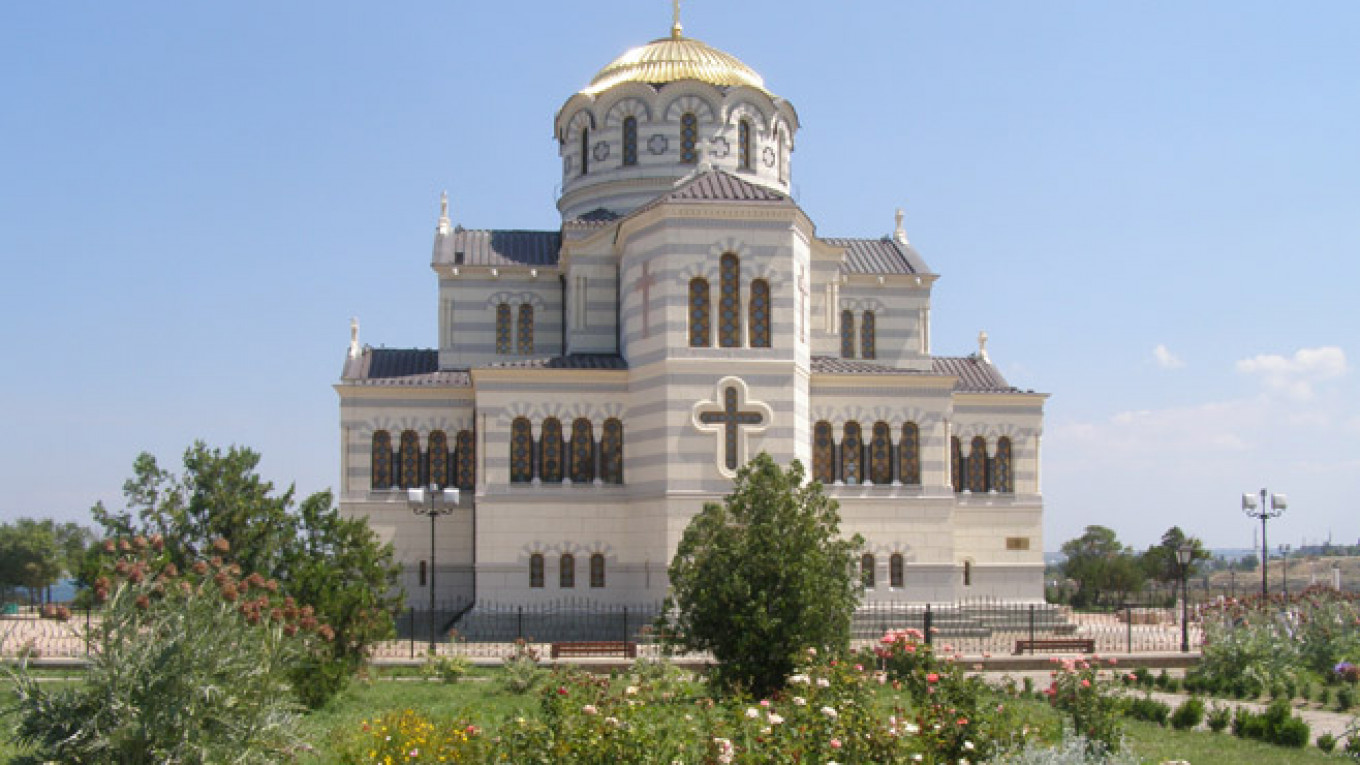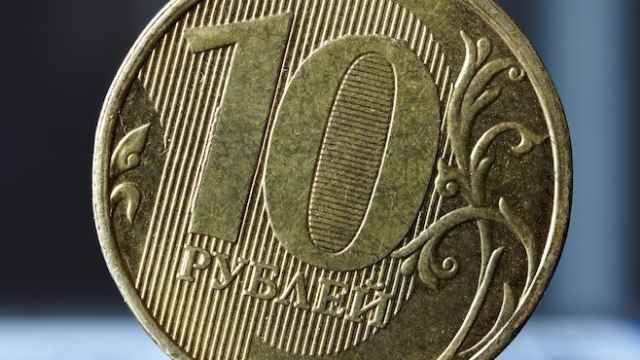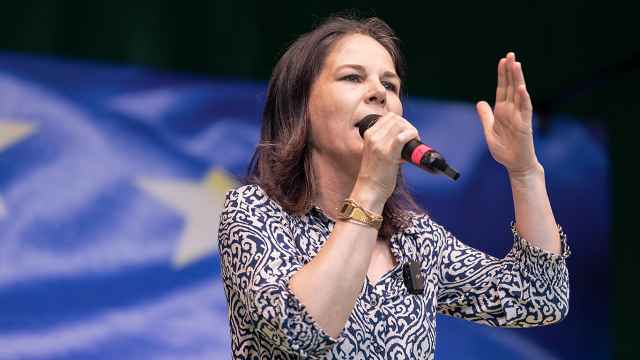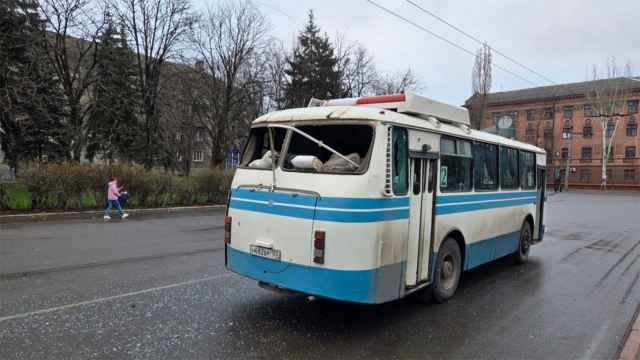If imitation is the highest form of flattery, then Moscow certainly seems keen to boost the spirits of recently annexed and internationally spurned Crimea.
A precise replica of a 19th-century cathedral that stands in the center of Sevastopol, a major port city in southwestern Crimea, will soon appear in the Russian capital, State Duma Deputy Vladimir Resin told news agency Interfax on Monday.
Resin, who oversees the building of new cathedrals in the Russian capital, made no bones about the political subtext of the construction.
"This church will become a symbol of the unity of Russia and Crimea, Moscow and Sevastopol," Resin said.
Few countries internationally have formally recognized Crimea as part of Russia, although it has effectively been under the wing of the Russian government since its annexation in March.
Just like the Neo-Byzantine original, the cathedral in Moscow will be dedicated to Vladimir the Great, the medieval prince who Christianized the realm of Kievan Rus, Ukraine's antecedent, at the end of the 10th century. The timing is apt, as next year will mark the millennial anniversary of the saint's death in 1015.
The cathedral will be built on the territory of Moscow's defunct Tushino airfield, Resin said — a somewhat unusual location for a church, as the region is essentially empty other than the glossy new stadium of Moscow's Spartak football team.
Moscow authorities last year, however, announced plans to transform the old airfield into a residential area that will provide jobs and housing for a population of about 28,000, according to business daily Vedomosti.
Resin did not specify the cost of the construction or sources of financing.
While building a precise imitation of an earlier cathedral may be a novel idea, the deputy said other similar projects are not out of the question, including one that would honor those killed during the fighting that still rages between the Ukrainian army and pro-Russian separatists in eastern Ukraine.
"For example, it would be right to build a memorial cathedral to those who died in Ukraine — it could replicate the shapes of the cathedral of John of Kronstadt, which was destroyed in Donetsk [in eastern Ukraine]," Resin said.
Contact the author at d.damora@imedia.ru
A Message from The Moscow Times:
Dear readers,
We are facing unprecedented challenges. Russia's Prosecutor General's Office has designated The Moscow Times as an "undesirable" organization, criminalizing our work and putting our staff at risk of prosecution. This follows our earlier unjust labeling as a "foreign agent."
These actions are direct attempts to silence independent journalism in Russia. The authorities claim our work "discredits the decisions of the Russian leadership." We see things differently: we strive to provide accurate, unbiased reporting on Russia.
We, the journalists of The Moscow Times, refuse to be silenced. But to continue our work, we need your help.
Your support, no matter how small, makes a world of difference. If you can, please support us monthly starting from just $2. It's quick to set up, and every contribution makes a significant impact.
By supporting The Moscow Times, you're defending open, independent journalism in the face of repression. Thank you for standing with us.
Remind me later.






